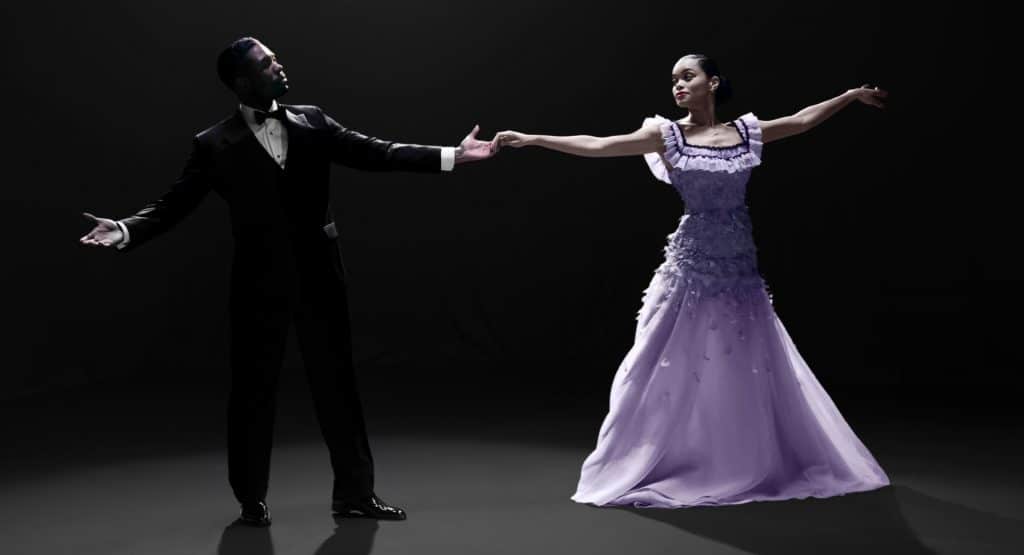Read also:
How to Watch FX Live Without CableHow To Watch AMC Without CableHow to Watch ABC Without CableHow to Watch Paramount Network Without CableAndra Day shines in Lee Daniels’ otherwise-messy biopic about the Black cultural icon, squandering some fine potential.
An icon of the 20th-century jazz scene, Billie Holiday was an icon of Black culture, haunted by abuse and addiction. Her song “Strange Fruit”, based on a poem that describes a lynching, propelled her to fame – but also got the attention of the federal government, taking dramatic steps to stop her from singing the song in an effort to racialize the War on Drugs. In The United States vs. Billie Holiday, Lee Daniels tracks Holiday as the Federal Department of Narcotics begins to pursue her toward that end, in a film that ends up being a waste of potential.
At the centre of Daniels’ film is Andra Day‘s take on Holiday, who gives a phenomenal performance. When she’s on screen, it always feels like you’re in the presence of a star – especially when she’s singing. Day mercifully captures the essence of the iconic singer (especially when she’s alone on stage singing “Strange Fruit”); you can feel the pain and power behind every note and facial expression. In moments like these, Day captures why people were so obsessed with Holiday, whether they loved her or were seeking her demise. I wish Suzan-Lori Parks’ screenplay (based on the Johann Hari novel Chasing the Scream: The First and Last Days of the War on Drugs) gave her more space to explore her interiority– the moments depicting her as an icon are powerful, but it doesn’t feel like Daniels gives Holiday the space to be a full person.
Opposite Day is Trevante Rhodes‘ Jimmy Fletcher, a narcotics agent with whom Holiday has a really fascinating and messy connection. Like Day, Rhodes radiates effortless charm; it takes a lot to make a character who does so many awful things, especially to his own people, feel even vaguely redeemable. You want to hate him, but then he gives his beaming smile and you can’t help but sympathize with him and his inner conflict. Unfortunately, the one thing that doesn’t work is his relationship with Day. Squint hard and you can see them as great friends, but there’s never really any romantic or sexual chemistry (and the attempts at forcing it feel awkward and stilted). A lot of this can be blamed on Daniels and Lori-Parks rarely giving them the space to develop a real basis for their relationship.

The rest of the federal agents that surround Fletcher are much less interesting. There are a few notable conversations with his fellow Black federal agents as they gradually realize they’re being used by the government – but they don’t really go anywhere. Meanwhile, the white agents feel like empty suits, and not in a way that’s menacing or interesting. The only exception to this is Garrett Hedlund as department head Harry Anslinger, who gives an almost comically bad caricature of a racist — all bluster without the necessary venom.
The rest of the ensemble gives committed performances, but suffer from being badly underwritten. This is especially true for the members of Holiday’s entourage. Da’Vine Joy Randolph is funny and warm, but isn’t given room to develop beyond being ‘the fat friend’. Miss Lawrence lights up the room, but is limited to being ‘the sassy gay friend’. Tyler James Williams is very cool, but barely gets enough time on screen to make his mark. Daniels and Lori-Parks don’t seem to know what to do with their packed roster of overstuffed characters, and everyone gets short shrift as a result.
That overstuffing is mirrored in the film’s broader structural issues. There are lots of perplexing jumps in time: some scenes feel unnecessary, while paradoxically it feels like a lot was left on the cutting room floor. One scene seems like we’re being set up for a courtroom drama, but then it’s over in two minutes. At one point, it seems like we’ll focus on a road trip with Holiday’s entourage, but it ends abruptly as well. Everything moves at such a breakneck pace that you can very rarely connect to what happens on screen. It feels like there are several different movies happening at the same time, and Daniels never commits to one.
It feels like there are several different movies happening at the same time, and Daniels never commits to one.
Frustratingly, the style and tone are equally non-committal. There are a host of stylistic choices intend to immerse you into the film’s 1940s setting, but only a few of them work (like when the frame rate drops significantly during her performance to give you a more impressionistic view of Day’s power). It also can’t find a tone; at some points, The United States vs. Billie Holiday feels like a conventional biopic, then it’s a romance, then dramedy, then tragedy. Daniels never weaves those threads into something coherent.
The United States vs. Billie Holiday opens with a vivid photograph of the aftermath of a real lynching – including the corpse of the person who was lynched. Then halfway through the film, we get a reality-blurring sequence where yet another lynching is vividly conveyed. Rather than feel powerful, it comes off voyeuristic, and perhaps that cuts to the heart of Daniels’ issues here. Daniels insists on throwing these violent images and events onto the screen, but they only exist to shock the audience. It feels grotesque and aimless.
The United States vs. Billie Holiday has fantastic lead performances and some moments of stylistic brilliance. But those positives are overshadowed by the film’s messy cacophony, which Daniels can’t seem to keep in time.